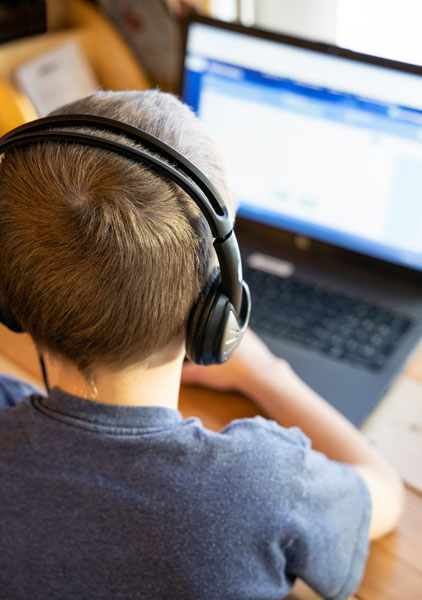The internet has become integral to our daily lives, providing access to information, entertainment, and opportunities to connect with others. For children, the internet can be a valuable tool for learning and socializing. However, it is essential for parents and caregivers to be aware of the potential dangers that children may encounter online and to take steps to protect them. This article will discuss some of the critical issues related to internet safety for kids and provide practical tips for keeping children safe while they are online.
Know the Risks of the Internet
One of the most significant dangers that children face online is the risk of exposure to inappropriate content. This content can include everything from violence and pornography to hate speech and bullying. Parents and caregivers can take several steps to protect children from this type of content, including:
- Setting up parental controls: Many internet service providers (ISPs) and devices (like smartphones, tablets, and gaming consoles) offer built-in parental controls that allow you to block certain websites, set time limits for internet use, and monitor your child’s online activity.
- Using filtering software: There are several software programs available that can filter out inappropriate content, including websites, images, and videos. Some popular options include Bark Home, Circle Home Plus, Norton Family, and Net Nanny.
- Supervising your child’s internet use: The most effective way to protect children from inappropriate content is to be involved in their internet use and to know what they are doing online. This supervision includes setting clear rules for internet use, monitoring your child’s activity, and talking to them about the risks of the internet.
Another primary concern for children online is the risk of online predators. These individuals use the internet to exploit children for their own nefarious purposes. To protect children from online predators, parents and caregivers should:
- Teach children about online safety: Children should be taught about the dangers of the internet and how to protect themselves from online predators. This includes teaching them to refrain from sharing personal information online, not to meet up with people they have met online, and not to respond to messages from strangers.
- Set limits on social media use: Children should be discouraged from using it until they are old enough to understand the risks and use it responsibly.
- Monitor your child’s online activity: Parents and caregivers should be aware of who their child is communicating with online and monitor their child’s social media accounts, instant messaging apps, and email.
Teach the Importance of Privacy
An important aspect of internet safety for kids is protecting their privacy. Children may need to be aware of the importance of keeping their personal information private and avoiding inadvertently sharing too much information online. To protect children’s privacy, parents and caregivers should:
- Teach children about privacy: Children should be taught about the importance of keeping their personal information private and how to protect it online.
- Limit the amount of personal information shared online: Children should be discouraged from sharing personal information such as their full name, address, phone number, or school name online.
- Be aware of the privacy settings on apps and websites: Many apps and websites allow users to customize their privacy settings. Parents and caregivers should be aware of these settings and ensure they are set to the most restrictive options.
Specific Steps for Parents and Caregivers
In addition to these general internet safety tips, there are also several specific steps that parents and caregivers can take to protect children while they are online. For example:
- Be aware of the risks of online gaming: Online gaming can be a lot of fun, but it can also expose children to risks such as cyberbullying, addiction, and exposure to inappropriate content. Parents and caregivers should be aware of these risks and take steps to protect children from them.
- Limit the amount of time spent online: Children should be encouraged to balance their time online with other activities, such as sports, reading, and spending time with family and friends. This will help to prevent internet addiction and ensure that children have a well-rounded lifestyle.
- Educate children about cyberbullying: Children should be taught about the dangers of cyberbullying and how to respond if they or someone they know is being bullied online. This includes learning how to report bullying and how to block or ignore bullies.
- Be aware of the risks of social media: Social media can be an excellent way for children to stay connected with friends and family, but it also exposes them to risks such as cyberbullying, sexting, and online grooming. Parents and caregivers should be aware of these risks and talk to their children about using social media safely.
- Be aware of the risks of sharing personal information: Children should be taught not to share personal information online, such as their home address, phone number, or school name. They should also be taught not to post pictures or videos of themselves without first checking with a parent or caregiver.
The internet can be a scary place, but it doesn’t have to be. Internet safety for kids is an important issue that requires the attention of parents and caregivers. By being aware of the potential dangers that children may encounter online and taking steps to protect them, parents and caregivers can help to ensure that children have a safe and enjoyable online experience. Some of the key steps that parents and caregivers can take include setting up parental controls, using filtering software, supervising internet use, teaching children about online safety, and protecting children’s privacy. With the right approach, parents and caregivers can help to ensure that children have a safe and enjoyable online experience.





Recent Comments